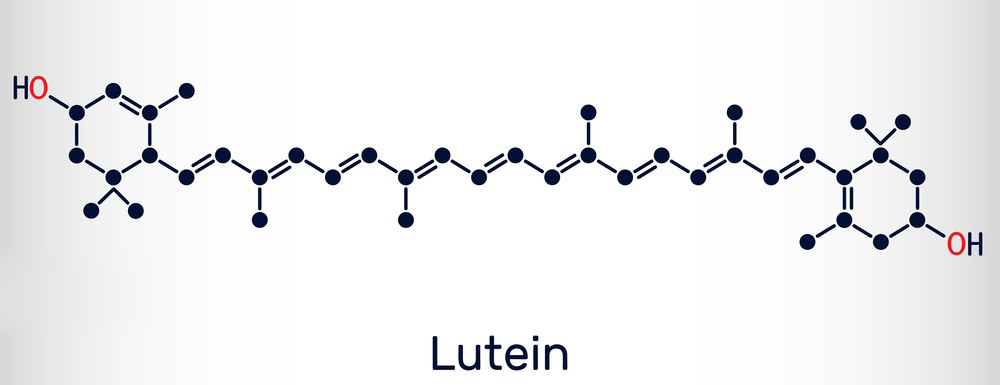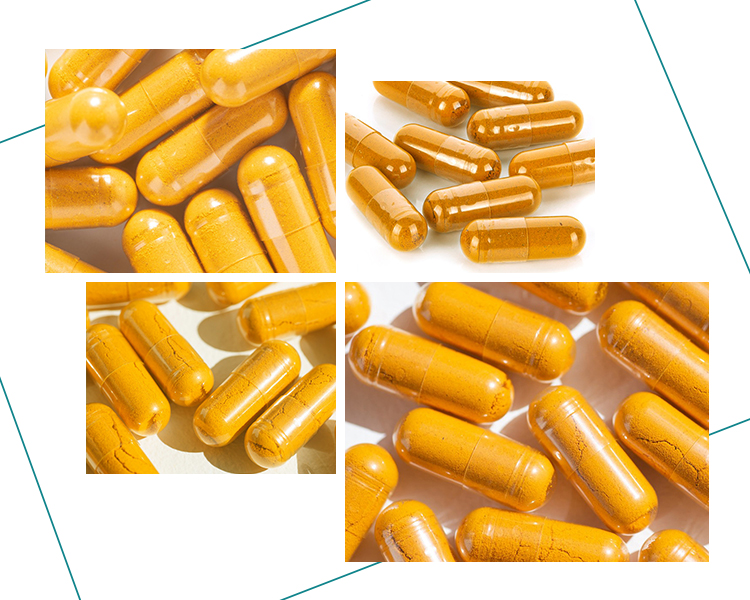Lutein capsules are dietary supplements that contain lutein extracted from natural sources or synthesized in laboratories. Lutein is a naturally occurring carotenoid found in various fruits and vegetables, particularly in green leafy vegetables like spinach and kale. It is a yellow pigment that belongs to the xanthophylls subgroup of carotenoids. Lutein is known for its antioxidant properties and its role in promoting eye health, particularly in reducing the risk of age-related macular degeneration (AMD) and cataracts.
Chemical structure of Lutein Capsule:
Lutein has the chemical formula C40H56O2 and the molecular weight of 568.87 g/mol. Its chemical structure consists of a polyene chain with conjugated double bonds and two hydroxyl groups at each end. The structure of lutein is similar to that of another carotenoid, zeaxanthin.
Physical properties of Lutein Capsule:
Appearance: Lutein is typically a yellow-orange pigment.
Solubility: Lutein is insoluble in water but soluble in organic solvents such as fats, oils, and organic solvents like ethanol.
Melting point: Lutein does not have a distinct melting point, as it decomposes upon heating.
Stability: Lutein is sensitive to light, heat, and oxygen, which can degrade its antioxidant properties over time. Therefore, it is often encapsulated or formulated into products to enhance its stability and shelf life.

Lutein is commonly available in the form of dietary supplements, including lutein capsules. These capsules typically contain lutein extracted from natural sources like marigold flowers or synthesized through chemical processes. The lutein content in these capsules can vary depending on the manufacturer and the intended dosage.
Lutein capsules are taken orally and are often recommended for individuals who may not obtain sufficient lutein through their diet alone, particularly those concerned about maintaining eye health or reducing the risk of AMD and cataracts. The capsules are usually formulated with other ingredients to improve absorption and stability.
It’s important to note that while lutein supplements can be beneficial for some individuals, it’s always advisable to consult with a healthcare professional before starting any new supplement regimen, especially if you have any pre-existing medical conditions or are taking medications.
Potential benefits of Lutein Capsule
Lutein is a naturally occurring carotenoid found in various fruits and vegetables, particularly in dark leafy greens like spinach and kale. It’s known for its antioxidant properties and has been associated with several potential health benefits. Lutein supplements, typically in the form of capsules, are often taken to enhance these benefits. Here are some potential benefits of lutein capsules:
Eye Health: Lutein is concentrated in the macula of the eye, where it acts as a filter for potentially damaging blue light and helps protect against age-related macular degeneration (AMD) and cataracts. Taking lutein supplements may help maintain or improve overall eye health, particularly in older adults.
Vision Support: Studies suggest that lutein supplementation may improve visual function, particularly contrast sensitivity and glare recovery, which could benefit individuals with conditions like AMD or those exposed to prolonged screen time.
Skin Health: Lutein has antioxidant properties that may help protect the skin from damage caused by UV radiation and environmental pollutants. It may also promote skin hydration and elasticity, potentially reducing the signs of aging such as wrinkles and fine lines.
Heart Health: Some research suggests that lutein, along with other carotenoids, may have cardiovascular benefits by reducing the risk of atherosclerosis (hardening of the arteries) and lowering blood pressure. These effects contribute to overall heart health and may reduce the risk of heart disease.
Cognitive Function: Lutein is believed to have neuroprotective properties that could benefit cognitive function. While more research is needed in this area, some studies have suggested that lutein may play a role in preserving cognitive function and reducing the risk of age-related cognitive decline.
Cancer Prevention: Antioxidants like lutein may help protect cells from damage that can lead to cancer. While research on the direct effects of lutein on cancer prevention is ongoing, its antioxidant properties suggest a potential role in reducing the risk of certain types of cancer.

Reduced Inflammation: Lutein possesses anti-inflammatory properties that may help reduce inflammation throughout the body. Chronic inflammation is linked to various health problems, including heart disease, diabetes, and autoimmune disorders.
Improved Immune Function: Lutein’s antioxidant and anti-inflammatory properties may also support immune function by protecting against oxidative stress and reducing inflammation, thereby enhancing the body’s ability to fight off infections and illnesses.
It’s important to note that while lutein supplements may offer these potential benefits, they are not a substitute for a balanced diet rich in fruits and vegetables. As with any supplement, it’s advisable to consult with a healthcare professional before starting lutein capsules, especially if you have any underlying health conditions or are taking medications.
